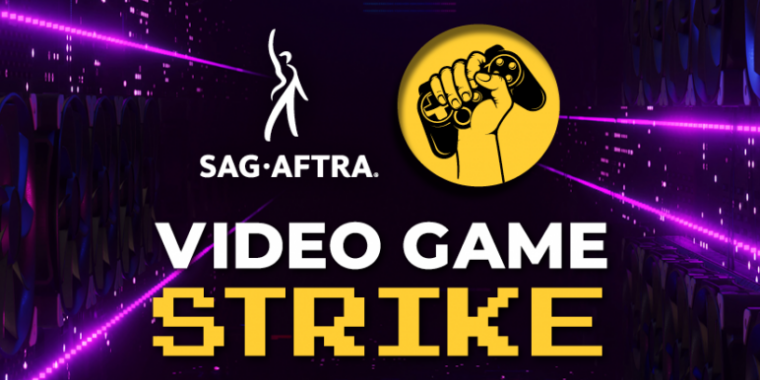SAG-AFTRA is calling for all its members working in the video game industry to strike, demanding that the next contract not allow “company misuse of AI to the detriment of our members.”
The strike is similar to a similar action taken by SAG-AFTRA and the Writers Guild of America (WGA) last year, which went beyond AI in scope and was similarly focused on concerns about AI-generated work and the use of their members’ work to train AI.
“Frankly, it’s astonishing that these video game studios have not learned any lessons from the past year. Our members can and will stand up and demand fair and equitable treatment when it comes to AI, and the public supports them,” SAG-AFTRA chief negotiator Duncan Crabtree Ireland said in a statement.
During the strike, the union’s more than 160,000 members will not provide talent to games made by Disney, Electronic Arts, Blizzard Activision, Take-Two, WB Games, and others. Not all games will be affected: some production companies may have tentative agreements with union members, and other games may be exempt, such as continuously updated games that were released before the current negotiations begin in September 2023.
Publishers and other companies released statements to the media through communications companies representing them. The statements provided to media outlets such as The New York Times said, “We are disappointed that the union chose to withdraw when we were so close to an agreement. We stand ready to resume negotiations.” The statements said that the two sides had found common ground on 24 of the 25 proposals, and that the game companies’ proposals were compliant and would “expand meaningful AI protections.”
The biggest remaining question concerns actors who perform in front of the camera, including motion-capture performers, according to The Washington Post: Crabtree Ireland told the paper that AI training protections have been extended to voice actors, but exclude motion and stunt work.[A]”All of these performers are entitled to informed consent and fair compensation for the use of their image, likeness, voice and performance – that’s all,” Crabtree-Ireland said in June.
Due to the nonlinear and secretive nature of game production, it’s difficult to know the impact of a game cast strike for some time, if ever, as the game’s conception, development, casting, acting, announcement, and further development (and development shifts) will occur on whatever timeline they occur.
SAG-AFTRA has a tool to search for game titles that have gone on strike due to union activity, but it’s tricky to use because it only recognizes specific production titles, code names, and ID numbers. Grand Theft Auto VI and 6 “Game Over!” (i.e. a strike) was returned, but Kotaku confirmed that the game was technically unaffected despite parent publisher Take-Two receiving a public strike.
The last time SAG-AFTRA video game performers went on strike was in 2016, over long-term royalties. That strike lasted 340 days, the longest in the union’s history, and was resolved with a pay increase for actors, but terms regarding residual wages and voice stress remained unresolved. The impact of the strike was either hidden from the public or largely mitigated, as affected titles hired non-union replacements. Voice work, as the original English voice actors have noted, Bayonettaremains a largely unprotected sector.


